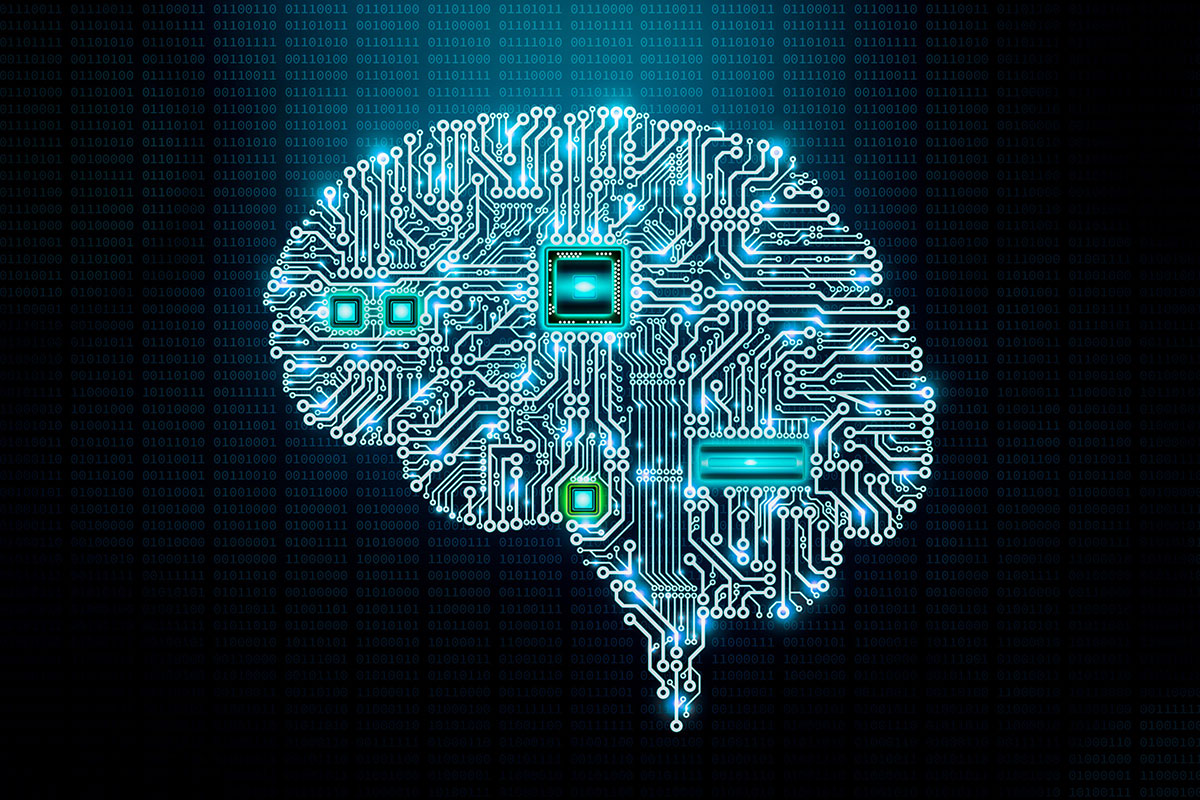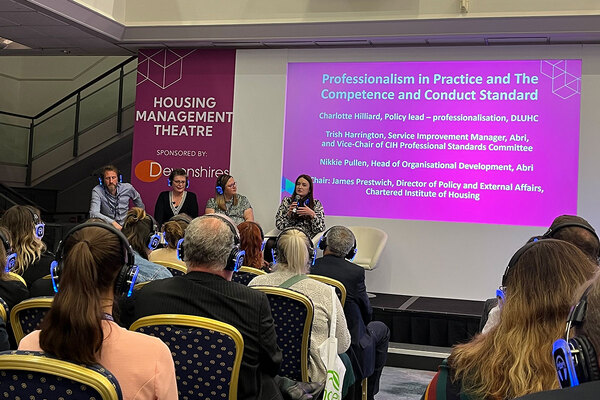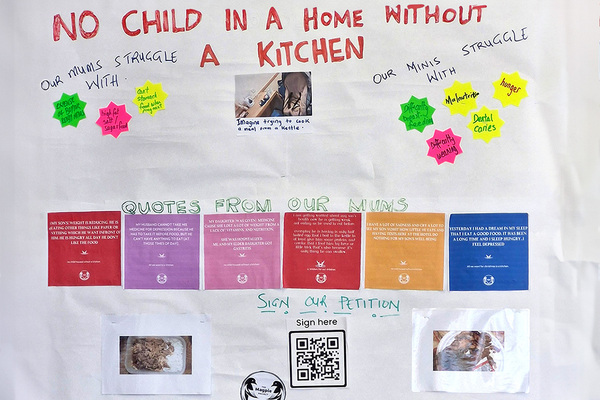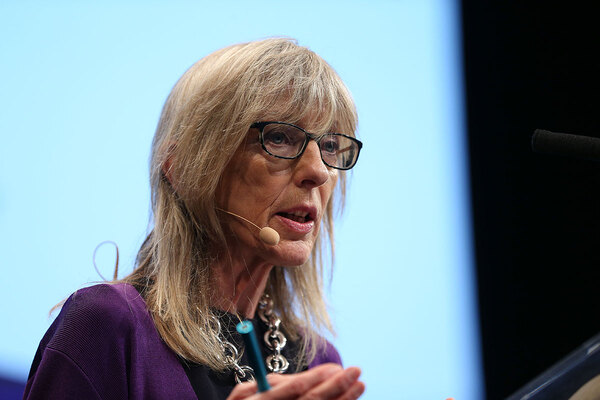You are viewing 1 of your 1 free articles

James Tickell is a partner at Campbell Tickell
How artificial intelligence could affect the future of social housing
Does artificial intelligence herald a new dawn for social housing and the promise of better services for tenants and residents? James Tickell explores the possibilities
Suddenly we read of little else but artificial intelligence. It’s going to change everything. We’re all going to lose our jobs. AI might decide to destroy the human race. It can write a million word-perfect Shakespeare sonnets in a nanosecond. Things will definitely never be the same again.
We’ve been here before, of course. When the World Wide Web was new, there were similar predictions. Some of them were even partly right. Much human knowledge is now available at the press of a button, broadband permitting, although it may not always be entirely reliable, to say the least. Social media can be entertaining, when not functioning as an online lynch mob, virtual cancellation pitchforks at the ready.
But no, the internet didn’t bring a great democratisation of the human condition, despite the alluring dreams of its inventors. As it turned out, it’s pretty much under the thumb of five great global corporations, not to mention proving a very useful tool for repression by authoritarian regimes. Let’s call it a mixed blessing, although at least it doesn’t actually threaten our global future.
So what about artificial intelligence then? Well, it started out pretty stupid, as anyone who has tried to get through to a service provider using voice recognition menus can attest. But it does seem to be making progress towards a reasonable semblance of actual intelligence. It can seemingly write better essays than most school children, and better speeches than many public figures.
When – out of idle curiosity – I asked ChatGPT about one of my ancestors, it (he, she, they?) obligingly made up some entertaining but entirely fictional details about her. I rather wished all that had been true, but sticking to the facts wasn’t part of the programme.
That might make AI particularly useful for politicians, now that we live in the post-truth era. “Alexa, write me a brilliant press release explaining why I must be innocent of the all the accusations against me, and how I’ve evidently done nothing wrong! Explain also how Mr X, my chief critic, is in fact guilty of far more heinous crimes, so that I can divert attention!”
“An expensive arms race beckons, with the potential result that no system, no phone call, no communication will ever really be trusted”
Anyway, the point is that AI, like the internet, nuclear power and the printing press before it, can be a force for good, or indeed for repression and evil. We are already beset by online human hackers trying to access our bank accounts, or to capture data so as to extract a ransom for its release. Just think how much easier their jobs will become with a boost from AI, able to analyse millions of lines of computer code in a trice, identifying and exploiting any weaknesses or errors.
My telephone bank uses voice recognition for me to access my account. If AI can replicate anyone’s voice, that’s not going to work for much longer. Most companies spend large sums on cyber security. With a mega-genius level AI hacker, no system will be safe, unless it has an even smarter set of defences. An expensive arms race beckons, with the potential result that no system, no phone call, no communication will ever really be trusted.
The same will be true at state level. A malevolent nation with tip-top AI will be able to wreak havoc worldwide, anonymously, unless the opposing side can muster an equal or stronger entity. Oppressive regimes will be able to detect potential dissidents and free-thinkers in the blink of an eye, and deal with them as they see fit.
On the bright side, the possibilities for improving customer services are astonishing. In our own social housing industry, the nexus of information about each tenant and every aspect of each property will be truly comprehensive, and fully interlinked. Big Brother, eat your heart out!
With smart sensors embedded in key components of each property, nothing much should ever go wrong without being anticipated well ahead of failure.
For every aspect of the business – arrears, anti-social behaviour, data collection, rent-setting, governance and management – anticipatory prevention rather than cure will be the order of the day. And with any luck, users will be able to have a nice chinwag with the AI while they’re about it, or even ask for help with the kids’ homework. So that’s the dream. A true transformation, rather than the sometimes half-hearted efforts of the present day.
“On the horizon, we can see a bright light. Is it a new dawn for human well-being and prosperity, or is it a fire that could consume us all?”
AI is surely here to stay, and becoming more versatile, more human-like and smarter as each year passes. In five or 10 years from now, the AI of the 2030s will be as different from today’s as a 2023 iPhone is to the brick-mobiles of the late 80s. One day, maybe quite soon, it will acquire something akin to consciousness. It’s certainly going to be interesting to watch. And surely too, it will create massive disruption – in the global economy, health, education, defence, banking and so on.
So what now? On the horizon, we can see a bright light. Is it a new dawn for human well-being and prosperity, or is it a fire that could consume us all? There are some deeply concerning aspects here. The idea of an AI arms race between opposing nation states has to be a worry. The potential for AI-driven hacking on a massive scale leads to thoughts of a post-truth dystopia, where very little is necessarily as it seems.
On the more utopian side, we can imagine a more prosperous and kinder world, without drudgery, without incompetence, without waste. Mind you, if we leave that to the politicians and global corporations, the chances of achieving any kind of utopia are not encouraging.
Again, returning to our own industry of social housing, this must be a promising area for sector collaboration. The all-singing, all-dancing AI of the 2030s won’t come cheap, we can be certain of that, and the journey to reach it will be long and (very) expensive. Let’s get going, together!
James Tickell, partner, Campbell Tickell










